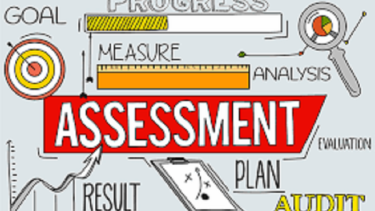
BC's Move to Proficiency Based Assessment
We are watching the movie "Dead Poets Society" and a scene came on that made us pause and reflect. It was the scene where Mr. Keating (Robin Williams) asks the students to rip out the introduction of their poetry textbook. https://www.youtube.com/watch?v=lkpWk8FJsys
The introduction was showing how to evaluate the greatness of a poem using a quantitative scale with numbers. Mr. Keating goes on to say that, "the human race is full of passion....that people's words and ideas can change the world." How do you quantify greatness, passion or finding personal connection to your world or your learning of it? The BC re-designed curriculum has ripped its own pages out of the traditional content heavy, teacher centered model and shifted towards a curriculum that is student-centered and focused on skill development (curricular competencies) and understanding one's identify (core competencies). This shift encourages educatoros and students to learn, connect to their passions, and apply/ innovate with new ideas to change the world.
The BC Classroom Assessment and Reporting policy will be implemented in all BC public schools starting in September 2023.
What is it doing? It is changing the perspective of grading from a number-based quantitative scale to one of proficiency. The proficiency (four scale) is designed for students to understand where they are at now and the skills involved to grow in their learning.
How is it being accomplished? The proficiency scale enables students to track their growth over time by using strength-based feedback. Upon reflection, students can initiate the process of goal setting to generate forward momentum in their learning.
Why is it important? Learners today hold in their hands, a device that allows them to access any content at any time (fact or opinion). Educators are evolving into facilitatiors, guiding the learner with developing their skills so they can navigate the content and communicate their learning.
The re-designed curriculum and reporting policy honors students and teacher autonomy to create opportunities for meaningful and personalized learning. The curriculum reflects an inquiry-based learning process that provides students with an opportunity to experiment, fail, research, revise their thinking, and try again, leading to more creative and innovative practices. The proficiency scale reinforces a risk-taking culture because it guides students along a continum of learning. Students are assessed on their ability to demonstrate the curricular competencies in conjunction with the content.
A proficiency-based system allows each student time and space to progress at their own pace. In addition to the proficiency scale, BC is incorporating differentiated strength-based feedforward support. A proficiency-based system enables students to extend their thinking and dig deeper into the content. With a focus on individual learning needs, it becomes an equitable environment to ensure all students will be supported.
BC's redesigned curriculm and new classroom assessment and reporting policy will enable teachers to change the culture in their classrooms, moving from measuring success in terms of grades to honoring the process of learning and growth as a holistic approach.
Teachers: what part of your practice do you want to rip out and re-design?
Students: how can school be about your learning journey or growth?
Parents: how can you shift the conversation from a mark or grade to one of continious improvement (the process of learning)
Your ideas can change to world!
Joanne Weatherby and Sandy Gill, UFV Teacher Education Department, Abbotsford, BC